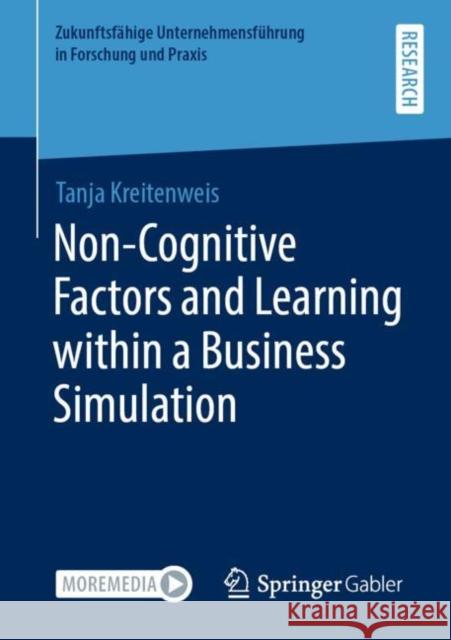Non-Cognitive Factors and Learning Within a Business Simulation » książka
topmenu
Non-Cognitive Factors and Learning Within a Business Simulation
ISBN-13: 9783658355524 / Angielski / Miękka / 2021 / 230 str.
Serious games can provide a convenient and straightforward access to complex knowledge for all age groups. However, learning achievements depend largely on learners’ non-cognitive factor disposition. With the aim of combining the fields of serious games and non-cognitive factors, this research focuses on the use of a business simulation which conveys change management insights. Business simulations are a subset of serious games and are perceived as a non-traditional learning method.
The objectives of this work are versatile: (1) developing a scale, which measures learners’ knowledge and skills increase gained from a business simulation, (2) investigating the effects of non-cognitive factors on learning in this business simulation environment and (3) exploring the moderating role of team preference in this type of learning setting. Using the newly developed scale, this work finds that learners' skills and knowledge states are more pronounced after playing the business simulation.











